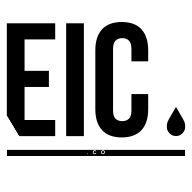Welcome to the world of SEO, where editors play a pivotal role in shaping the digital landscape. This blog post will delve into the intricacies of SEO optimization for editors, providing a comprehensive guide to enhance your editorial skills in the digital realm. We will explore the importance of SEO, its impact on content, and how editors can effectively optimize their work for better visibility and engagement.
Understanding SEO: The Basics
SEO, or Search Engine Optimization, is a digital marketing strategy that aims to increase a website's visibility in search engine results. It involves various techniques and strategies to improve a website's ranking, thereby attracting more traffic. As an editor, understanding SEO is crucial to ensure the content you edit is not only engaging and informative but also SEO-friendly.
The world of SEO is vast and complex, with numerous factors influencing a website's ranking. These include keyword usage, backlinks, website design, and user experience, among others. However, at the heart of SEO lies content. Quality content that is well-optimized for SEO can significantly improve a website's ranking, making it more visible to users.
As an editor, your role in SEO optimization is to ensure that the content is not only grammatically correct and well-written but also optimized for search engines. This involves understanding and implementing various SEO strategies, such as keyword usage, meta descriptions, and header tags, among others.
The Role of Keywords in SEO
Keywords play a crucial role in SEO. They are the terms and phrases that users type into search engines when looking for information. By incorporating relevant keywords into your content, you can improve its visibility in search engine results, thereby attracting more traffic.
As an editor, you must ensure that the content you edit includes relevant keywords. However, keyword usage is not just about incorporating as many keywords as possible. This practice, known as keyword stuffing, can lead to penalties from search engines. Instead, keywords should be used naturally and in context, enhancing the readability and relevance of the content.
In addition to using keywords in the body of the content, they should also be included in the title, headers, and meta description. This not only improves the content's visibility in search engine results but also provides users with a clear idea of what the content is about.
The Importance of Meta Descriptions and Header Tags
Meta descriptions and header tags are two important elements of SEO that editors should be aware of. A meta description is a brief summary of a webpage's content that appears in search engine results. It provides users with a snapshot of what the page is about, influencing their decision to click on the link.
As an editor, you should ensure that each webpage has a unique and compelling meta description that includes relevant keywords. This not only improves the page's visibility in search engine results but also encourages users to click on the link.
Header tags, on the other hand, are used to structure content, making it easier for users to read and understand. They also play a role in SEO, as search engines use them to understand the content of a webpage. As an editor, you should ensure that the content you edit is well-structured with appropriate header tags, improving its readability and SEO.
The Impact of SEO on User Experience
SEO is not just about improving a website's visibility in search engine results. It also has a significant impact on user experience. A well-optimized website is easy to navigate, with content that is relevant and engaging. This not only attracts more traffic but also encourages users to stay on the website longer, increasing the chances of conversion.
As an editor, you play a crucial role in enhancing user experience through SEO. By ensuring the content is well-written, well-structured, and optimized for search engines, you can improve the user experience, leading to higher engagement and conversion rates.
The Future of SEO: What Editors Need to Know
The world of SEO is constantly evolving, with search engines regularly updating their algorithms to provide users with the most relevant and high-quality results. As an editor, it's important to stay updated with these changes to ensure the content you edit remains relevant and visible in search engine results.
One of the key trends in SEO is the increasing importance of mobile optimization. With more users accessing the internet on their mobile devices, search engines are placing greater emphasis on mobile-friendly websites. As an editor, you should ensure that the content you edit is not only desktop-friendly but also mobile-friendly.
Another trend is the rise of voice search, with more users using voice assistants to search for information. This has implications for keyword usage, as voice searches tend to be more conversational and longer than text searches. As an editor, you should consider these trends when editing content, ensuring it is optimized for the future of SEO.
SEO Tools for Editors
There are numerous SEO tools available that can assist editors in optimizing content. These tools can help you identify relevant keywords, analyze the SEO performance of a webpage, and provide suggestions for improvement.
Some of the popular SEO tools include Google Keyword Planner, SEMrush, and Moz. These tools provide a wealth of information that can help you optimize content for SEO. However, it's important to remember that these tools are just aids. The key to successful SEO optimization lies in understanding the principles of SEO and applying them effectively.
Wrapping Up: SEO Optimization for Editors
SEO optimization is a crucial skill for editors in the digital age. By understanding and implementing SEO strategies, editors can significantly enhance the visibility and engagement of the content they edit. From understanding the basics of SEO to keeping up with the latest trends, this guide has provided a comprehensive overview of SEO optimization for editors. Remember, the world of SEO is constantly evolving, and as an editor, it's important to stay updated and adapt to these changes.

